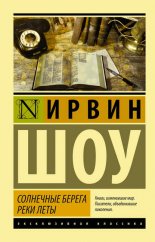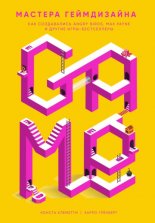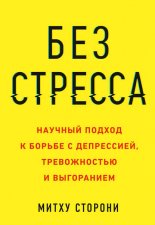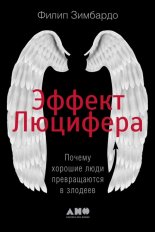Notice: Undefined variable: contentRead in /var/www/www-root/data/www/knizh.ru/funcs.php on line 681
Notice: Undefined variable: row in /var/www/www-root/data/www/knizh.ru/funcs.php on line 719
Notice: Trying to access array offset on value of type null in /var/www/www-root/data/www/knizh.ru/funcs.php on line 719
пїЅпїЅпїЅпїЅпїЅпїЅпїЅпїЅпїЅпїЅпїЅ пїЅпїЅпїЅпїЅпїЅ. пїЅпїЅпїЅпїЅпїЅ пїЅпїЅпїЅпїЅпїЅпїЅпїЅ пїЅпїЅпїЅпїЅпїЅпїЅпїЅ пїЅпїЅпїЅпїЅпїЅпїЅпїЅпїЅпїЅ пїЅпїЅпїЅпїЅпїЅпїЅ пїЅпїЅпїЅпїЅпїЅ
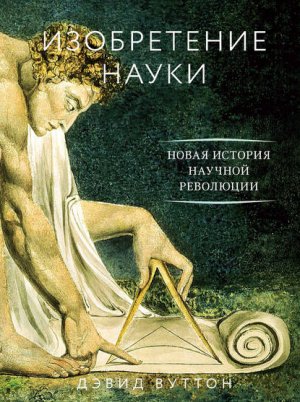
BoyerпїЅC.пїЅB.пїЅAristotelian References to the Law of ReflectionпїЅ// Isis 36 (1946). 92пїЅ95.
Idem. Early Estimates of the Velocity of LightпїЅ// Isis 33 (1941). 24пїЅ40.
Idem. The Rainbow from Myth to Mathematics. N. Y.: T.пїЅYoseloff, 1959.
BoyleпїЅR.пїЅCertain Physiological Essays and Other Tracts. L.: H.пїЅHerringman, 1669.
Idem. Certain Physiological Essays Written at Distant Times, and on Several Occasions. L.: H.пїЅHerringman, 1661.
Idem. The Christian Virtuoso Shewing, that by being Addicted to Experimental Philosophy, a Man is Rather Assisted, than Indisposed, to be a Good Christian. L.: J.пїЅTaylor, 1690.
Idem. A Continuation of New Experiments Physico-mechanical. Oxford: R.пїЅDavis, 1682.
Idem. The Correspondence of Robert Boyle, 1636пїЅ1691. Ed. M. C.пїЅW.пїЅHunter, A.пїЅClericuzio, L.пїЅPrincipe. 6пїЅvols. L.: Pickering & Chatto, 2001.
Idem. A Defence of the Doctrine Touching the Spring and Weight of the Air. L.: FG, 1662.
Idem. Experimenta et observationes physic: Wherein are Briefly Treated of Several Subjects Relating to Natural Philosophy in an Experimental Way. L.: J.пїЅTaylor, 1691.
Idem. Experimentorum novorum physico-mechanicorum continuation secunda. Geneva: S. de Tournes, 1680.
Idem. Experiments and Considerations Touching Colours. L.: H.пїЅHerring-man, 1664.
Idem. A Free Enquiry into the Vulgarly ReceivпїЅd Notion of Nature. L.: J.пїЅTaylor, 1686.
Idem. Hydrostatical Paradoxes. Oxford: R.пїЅDavis, 1666.
Idem. New Experiments Physico-Mechanical, Touching the Spring of the Air. Oxford: H.пїЅHall, 1660.
Idem. Nouveau trait. Lyons: J.пїЅCerte, 1689.
Idem. Occasional Reflections upon Several Subjects. L.: H.пїЅHerringman, 1665.
Idem. The Origine of Formes and Qualities. Oxford: R.пїЅDavis, 1666.
Idem. Some Considerations Touching the Usefulnesse of Experimental Naturall Philosophy. Oxford: R.пїЅDavis, 1663.
Idem. Tryals Proposed by Mr Boyle to Dr Lower, to be Made by Him, for the Improvement of Transfusing Blood out of One Live Animal into AnotherпїЅ// Philosophical Transactions 1 (1667). 385пїЅ388.
Idem. The Works of Robert Boyle. Ed. M.пїЅHunter, E.пїЅB.пїЅDavis. 14 vols. L.: Pickering & Chatto, 1999пїЅ2000.
BradingпїЅK.пїЅThe Development of the Concept of Hypothesis from Copernicus to Boyle and NewtonпїЅ// Revista de Filozofie KRISIS8 (1999). 5пїЅ16.
BraheпїЅT.пїЅSur des phnomnes plus rcents du monde thr, livre second. Trans. J.пїЅPeyroux. P.: A.пїЅBlanchard, 1984.
BranniganпїЅA.пїЅThe Social Basis of Scientific Discoveries. Cambridge: Cambridge University Press, 1981.
BromanпїЅT.пїЅThe Habermasian Public Sphere and пїЅScience in the EnlightenmentпїЅпїЅ// History of Science 36 (198). 123пїЅ150.
BrookпїЅT.пїЅVermeerпїЅs Hat: The Seventeenth Century and the Dawn of the Global World. L.: Profile, 2008.
BrottonпїЅJ. A History of the World in Twelve Maps. L.: Allen Lane, 2012.
BroughtonпїЅP.пїЅThe First Predicted Return of Comet HalleyпїЅ// Journal for the History of Astronomy 16 (1985). 123пїЅ132.
BrownпїЅA.пїЅThe Return of Lucretius to Renaissance Florence. Cambridge, Mass.: Harvard University Press, 2010.
BrownпїЅG.пїЅI.пїЅThe Evolution of the Term пїЅMixed MathematicsпїЅпїЅ// Journal of the History of Ideas 52 (1991). 81пїЅ102.
BrownпїЅJ.пїЅR.пїЅWho Rules in Science? An Opinionated Guide to the Wars. Cambridge, Mass.: Harvard University Press, 2001.
BrownпїЅL.пїЅA.пїЅJean Domenique Cassini and His World Map of 1696. Ann Arbor: University of Michigan Press, 1941.
BrownпїЅP.пїЅHac ex consilio meo via progredieris: Courtly Reading and Secretarial Mediation in DonneпїЅs пїЅThe CourtierпїЅs LibraryпїЅпїЅ// Renaissance Quarterly 61 (2008). 833пїЅ866.
BrowneпїЅT.пїЅPseudodoxia epidemica, or Enquiries into Very Many Received Tenents, and Commonly Presumed Truths. L.: E.пїЅDod, 1646.
Idem. Pseudodoxia epidemica: Or, Enquiries into Very Many Received Tenents and Commonly Presumed Truths. L.: N.пїЅEkins, 1672.
BrummelenпїЅG. van. The Mathematics of the Heavens and the Earth: The Early History of Trigonometry. Princeton: Princeton University Press, 2009.
BrunoпїЅG.пїЅThe Ash Wednesday Supper = La Cena de le Ceneri. Ed. E.пїЅA.пїЅGosselin, L.пїЅS.пїЅLerner. Toronto: University of Toronto Press, 1995.
De BruynпїЅF.пїЅThe Classical Silva and the Generic Development of Scientific Writing in Seventeenth-century EnglandпїЅ// New Literary History 32 (2001). 347пїЅ373.
BucciantiniпїЅM., CamerotaпїЅM., GiudiceпїЅF.пїЅGalileoпїЅs Telescope: A European Story. Cambridge Mass.: Harvard University Press, 2015.
BuchwaldпїЅJ.пїЅZ.пїЅDescartesпїЅ Experimental Journey Past the Prism and through the Invisible World to the RainbowпїЅ// Annals of Science 65 (2008). 1пїЅ46.
BuchwaldпїЅJ.пїЅZ., FeingoldпїЅM.пїЅNewton and the Origin of Civilization. Princeton: Princeton University Press, 2013.
BuringhпїЅE., ZandenпїЅJ.пїЅL. van. Charting the пїЅRise of the WestпїЅ: Manuscripts and Printed Books in Europe, a Long-term Perspective from the Sixth through Eighteenth CenturiesпїЅ// Journal of Economic History 69 (2009). 409пїЅ445.
BurkertпїЅW.пїЅLore and Science in Ancient Pythagoreanism. Cambridge, Mass.: Harvard University Press, 1972.
BurnsпїЅW.пїЅE.пїЅAn Age of Wonders: Prodigies, Politics and Providence in England, 1657пїЅ1727. Manchester: Manchester University Press, 2002.
Idem. пїЅOur Lot is Fallen into an Age of WondersпїЅ: John Spencer and the Controversy Over Prodigies in the Early RestorationпїЅ// Albion 27 (1995). 237пїЅ252.
BurttпїЅE.пїЅA.пїЅThe Metaphysical Foundations of Modern Physical Science: A Historical and Critical Essay. L.: Routledge, 1924.
BuryпїЅJ.пїЅB.пїЅThe Idea of Progress: An Inquiry into Its Origin and Growth. L.: Macmillan, 1920.
ButterfieldпїЅH.пїЅThe Origins of Modern Science, 1300пїЅ1800. L.: Bell, 1950.
Idem. The Whig Interpretation of History. L.: Bell, 1931.
ByrneпїЅJ.пїЅS. A Humanist History of Mathematics? RegiomontanusпїЅs Padua Oration in ContextпїЅ// Journal of the History of Ideas 67 (2006). 41пїЅ61.
CalcagniniпїЅC.пїЅOpera aliquot. Basle: H.пїЅFrobenius, 1544.
CallonпїЅM.пїЅBotes noires et oprations de traductionпїЅ// conomie et humanisme 262 (1981). 53пїЅ59.
CamerotaпїЅF.пїЅLa prospettiva del Rinascimento: arte, architettura, scienza. Milano: Electa, 2006.
CamerotaпїЅM.пїЅGalileo, Lucrezio e lпїЅatomismoпїЅ// Lucrezio, la natura, la scienza. Ed. F.пїЅBeretta, F.пїЅCitti. Florence: L.пїЅS.пїЅOlschki, 2008. 141пїЅ175.
CampbellпїЅM.пїЅB.пїЅSpeedy Messengers: Fiction, Cryptography, Space Travel and Francis GodwinпїЅs пїЅThe Man in the MooneпїЅпїЅ// Yearbook of English Studies 41 (2011). 190пїЅ204.
Idem. Wonder and Science: Imagining Worlds in Early Modern Europe. Ithaca: Cornell University Press, 1999.
CaraciпїЅL.пїЅI.пїЅAmerigo Vespucci. Nuova Raccolta Colombiana. Rome: Istituto poligrafico e Zecca dello Stato, 1999.
CardanoпїЅG.пїЅDe subtilitate libri XXI. Basle: L.пїЅLucius, 1554.
CarpenterпїЅA.пїЅT.пїЅJohn Theophilus Desaguliers. L.: Continuum, 2011.
CarpenterпїЅN.пїЅGeographie Delineated Forth in Two Bookes, Containing the Spherical and Topicall Parts Thereof. Oxford: J.пїЅLichfield, 1635.
Idem. Philosophia libera, triplici exercitationum decade proposita: In qua, ad v ersus huius temporis philosophos, dogmata qudam nova discutiuntur. Oxford: J.пїЅLichfield, 1622.
CarpoпїЅM.пїЅArchitecture in the Age of Printing. Cambridge, Mass.: MIT Press, 2001.
CarrollпїЅP.пїЅScience, Culture and Modern State Formation. Berkeley: University of California Press, 2006.
CassinпїЅB., RendallпїЅS., ApterпїЅE.пїЅS. (eds.). Dictionary of Untranslatables: A Philosophical Lexicon. Princeton: Princeton University Press, 2014.
De CausпїЅS.пїЅLes Raisons des forces mouvantes. Frankfurt: J.пїЅNorton, 1615.
CavendishпїЅM.пїЅThe Description of a New World, Called the Blazing-World. L.: A.пїЅMaxwell, 1666.
Card J.пїЅLa Nature et les prodiges: LпїЅInsolite au XVIe sicle. Geneva: Droz, 1996.
CesariпїЅA.пїЅM.пїЅIl trattato della sfera di Andal di Negro nelle Zibaldone del Boccaccio. Milan: A.пїЅM.пїЅCesari, 1982.
CesiпїЅB.пїЅMineralogia, sive, Naturalis philosophi thesauri. Louvain: J. & P.пїЅProst, 1636.
ChalmersпїЅA.пїЅIntermediate Causes and Explanations: The Key to Understanding the Scientific RevolutionпїЅ// Studies in History and Philosophy of Science Part A 43 (2012). 551пїЅ562.
Idem. Klein on the Origin of the Concept of Chemical CompoundпїЅ// Foundations of Chemistry 14 (2012). 37пїЅ53.
Idem. The Lack of Excellency of BoyleпїЅs Mechanical PhilosophyпїЅ// Studies in History and Philosophy of Science Part A 24 (1993). 541пїЅ64.
Idem. Qualitative Novelty in Seventeenth-century Science: Hydrostatics from Stevin to PascalпїЅ// Studies in History and Philosophy of Science Part A 51 (2015). 1пїЅ10.
Idem. The ScientistпїЅs Atom and the PhilosopherпїЅs Stone How Science Succeeded and Philosophy Failed to Gain Knowledge of Atoms. Dordrecht: Springer, 2009.
Idem. Understanding Science through Its History: A Response to NewmanпїЅ// Studies in History and Philosophy of Science Part A 42 (2011). 150пїЅ153.
ChangпїЅH.пїЅInventing Temperature: Measurement and Scientific Progress. Oxford: Oxford University Press, 2004.
Idem. Is Water H2O?: Evidence, Pluralism and Realism. Dordrecht: Springer, 2012.
ChapmanпїЅA.пїЅTycho Brahe in China: The Jesuit Mission to Peking and the Iconography of European Instrument-making ProcessesпїЅ// Annals of Science 41 (1984). 417пїЅ443.
Idem. A World in the MoonпїЅпїЅ Wilkins and His Lunar Voyage of 1640пїЅ// Quarterly Journal of the Royal Astronomical Society 32 (1991). 121.
CharletonпїЅW.пїЅThe Darknes of Atheism Dispelled by the Light of Nature. A Physico-Theologicall Treatise. L.: W.пїЅLee, 1652.
Idem. Physiologia Epicuro-Gassendo-Charletoniana, or A Fabrick of Science Natural upon the Hypothesis of Atoms. L.: T.пїЅHeath, 1654.
ChartierпїЅR.пїЅThe Cultural Origins of the French Revolution. Durham, NC: Duke University Press, 1991.
ChteletпїЅ. du. Selected Philosophical and Scientific Writings. Ed. J.пїЅP.пїЅZinsser. Chicago: University of Chicago Press, 2009.
ChesneпїЅJ. du. The Practise of Chymicall, and Hermeticall Physicke. Trans. T.пїЅTimme. L.: T.пїЅCreede, 1605.
ChildпїЅW.пїЅWittgenstein. L.: Routledge, 2011.
ChristiansonпїЅJ.пїЅR.пїЅOn TychoпїЅs Island: Tycho Brahe, Science and Culture in the Sixteenth Century. Cambridge: Cambridge University Press, 2000
ChristieпїЅT.пїЅNobody Invented the Scientific Method. 29 August 2012. http://thonyc.wordpress.com/2012/08/29/nobody-invented-the-scientificmethod/ (accessed 10 December 2014).
CiceroпїЅM.пїЅT.пїЅDe natura deorum: Academica. Ed. H.пїЅRackham. Cambridge, Mass.: Harvard University Press, 1933.
Cieslak-Golonka M., MortenпїЅB.пїЅThe Women Scientists of BolognaпїЅ// American Scientist 88 (2000). 68пїЅ73.
CilibertoпїЅM., MannпїЅN. (eds.). Giordano Bruno, 1583пїЅ1585: The English Experience. Florence: L.пїЅS.пїЅOlschki, 1997.
CipollaпїЅC.пїЅM.пїЅClocks and Culture, 1300пїЅ1700. L.: Collins, 1967.
Idem. European Culture and Overseas Expansion. Harmondsworth: Penguin, 1970.
ClagettпїЅM.пїЅThe Impact of Archimedes on Medieval ScienceпїЅ// Isis 50 (1959). 419пїЅ429.
Idem. The Science of Mechanics in the Middle Ages. Madison: University of Wisconsin Press, 1959.
ClarkпїЅK.пїЅM., MontelleпїЅC.пїЅPriority, Parallel Discovery, and Pre-eminence: Napier, Brgi and the Early History of the Logarithm RelationпїЅ// Revue dпїЅhistoire des mathmatiques 18 (2012). 223пїЅ270.
ClarkпїЅS.пїЅThinking with Demons: The Idea of Witchcraft in Early Modern Europe. Oxford: Clarendon Press, 1997.
ClarkeпїЅD.пїЅM.пїЅDescartes: A Biography. Cambridge: Cambridge University Press, 2006.
Idem. DescartesпїЅ Philosophy of Science. Manchester: Manchester University Press, 1982.
Idem. Occult Powers and Hypotheses: Cartesian Natural Philosophy under LouisпїЅXIV. Oxford: Clarendon Press, 1989.
ClaviusпїЅC.пїЅIn sphaeram Ioannis de Sacro Bosco commentarius, nunc tertio ab ipso auctore recognitus. Rome: D.пїЅBasa, 1585.
Idem. Opera mathematica. 5пїЅvols. Mainz: Hierat, 1611пїЅ1612.
ClubbпїЅL.пїЅG.пїЅGiambattista della Porta, Dramatist. Princeton: Princeton University Press, 1965.
Clutton-Brock M.пїЅCopernicusпїЅs Path to His Cosmology: An Attempted ReconstructionпїЅ// Journal for the History of Astronomy 36 (2005). 197пїЅ216.
CobbпїЅM.пїЅGeneration: The Seventeenth-century Scientists who Unravelled the Secrets of Sex, Life and Growth. N. Y.: Bloomsbury, 2006.
CobbanпїЅA.пїЅThe Social Interpretation of the French Revolution. Cambridge: Cambridge University Press, 1964.
CohenпїЅH.пїЅF.пїЅHow Modern Science Came into the World: Four Civilizations, One 17th-century Breakthrough. Amsterdam: Amsterdam University Press, 2010.
Idem. Inside NewcomenпїЅs Fire Engine: The Scientific Revolution and the Rise of the Modern WorldпїЅ// History of Technology 25 (2004). 111пїЅ132.
Idem. The Scientific Revolution: A Historiographical Inquiry. Chicago: University of Chicago Press, 1994.
CohenпїЅI.пїЅB.пїЅThe Birth of a New Physics. N. Y.: Norton, 1987.
Idem. The Eighteenth-century Origins of the Concept of Scientific RevolutionпїЅ// Journal of the History of Ideas 37 (1976). 257пїЅ288.
Idem. The First English Version of NewtonпїЅs Hypotheses non fingoпїЅ// Isis 53 (1962). 379пїЅ388.
Idem. Hypotheses in NewtonпїЅs PhilosophyпїЅ// Physis 8 (1966). 163пїЅ183.
Idem. Quantum in se est: NewtonпїЅs Concept of Inertia in Relation to Descartes and LucretiusпїЅ// Notes and Records of the Royal Society of London 19 (1964). 131пїЅ155.
Idem. Roemer and the First Determination of the Velocity of Light (1676)пїЅ// Isis 31 (1940). 327пїЅ379.
Collingwood, Robin George. An Autobiography. L.: Oxford University Press, 1939.
Idem. The Idea of Nature. Oxford: Clarendon Press, 1945.
CollinsпїЅH.пїЅM.пїЅChanging Order: Replication and Induction in Scientific Practice. L.: Sage, 1985.
Idem. Introduction: Stages in the Empirical Programme of RelativismпїЅ// Social Studies of Science 11 (1981). 3пїЅ10.
Idem. Son of Seven Sexes: The Social Destruction of a Physical PhenomenonпїЅ// Social Studies of Science 11 (1981). 33пїЅ62.
Idem. Tacit Knowledge, Trust and the Q of SapphireпїЅ// Social Studies of Science 31 (2001). 71пїЅ85.
Idem. The TEA Set: Tacit Knowledge and Scientific NetworksпїЅ// Social Studies of Science 4 (1974). 165пїЅ185.
CollinsonпїЅP.пїЅThe Monarchical Republic of Queen ElizabethпїЅIпїЅ// Bulletin of the John Rylands University Library of Manchester 69 (1987). 394пїЅ424.
ColnпїЅF.пїЅThe Life of the Admiral Christopher Columbus. Ed. B Keen. New Brunswick: Rutgers University Press, 1992.
ColumbusпїЅC.пїЅThe Four Voyages. Trans. J.пїЅM.пїЅCohen. Harmondsworth: Penguin, 1969.
Idem. The Journal of Christopher Columbus (During His First Voyage, 1492пїЅ1493). Ed. CR Markham. Cambridge: Cambridge University Press, 2010.
ConantпїЅJ.пїЅOn WittgensteinпїЅs Philosophy of MathematicsпїЅ// Proceedings of the Aristotelian Society 97 (1997). 195пїЅ222.
ConantпїЅJ.пїЅB.пїЅRobert BoyleпїЅs Experiments in Pneumatics. Cambridge, Mass.: Harvard University Press, 1950.
Condorcet, marquis de. Outlines of an Historical View of the Progress of the Human MindпїЅ Translated from the French. L.: J.пїЅJohnson, 1795.
ConsidineпїЅJ.пїЅDictionaries in Early Modern Europe: Lexicography and the Making of Heritage. Cambridge: Cambridge University Press, 2008.
ConstantiniпїЅA.пїЅLa Vie de Scaramouche. P.: C.пїЅBarbin, 1695.
CookпїЅM.пїЅG.пїЅDivine Artifice and Natural Mechanism: Robert BoyleпїЅs Mechanical Philosophy of NatureпїЅ// Osiris 16 (2001). 133пїЅ150.
CooperпїЅA.пїЅInventing the Indigenous: Local Knowledge and Natural History in Early Modern Europe. Cambridge: Cambridge University Press, 2007.
CopenhaverпїЅB.пїЅP.пїЅThe Historiography of Discovery in the Renaissance: The Sources and Composition of Polydore VergilпїЅs De inventoribus rerum, IпїЅIIIпїЅ// Journal of the Warburg and Courtauld Institutes 41 (1978). 192пїЅ214.
CopernicusпїЅN.пїЅDe revolutionibus orbium coelestium. Nuremberg: J.пїЅPetreius, 1543.
Idem. On the Revolutions. Ed. J.пїЅDobrzycki. Trans. E.пїЅRosen. Baltimore: Johns Hopkins University Press, 1978.
CosgroveпїЅD.пїЅE.пїЅImages of Renaissance CosmographyпїЅ// The History of Cartography. 6пїЅvols. Vol. 3: Cartography in the European Renaissance. Ed. D.пїЅWoodward. Chicago: University of Chicago Press, 2007: 55пїЅ98.
CostabelпїЅP.пїЅSur lпїЅorigine de la science classiqueпїЅ// Revue philosophique de la France et de lпїЅtranger 137 (1947). 208пїЅ221.
CowellпїЅJ.пїЅThe Interpreter, or Booke Containing the Signification of Words. Cambridge: J.пїЅLegate, 1607.
CraftsпїЅN.пїЅExplaining the First Industrial Revolution: Two ViewsпїЅ// European Review of Economic History 15 (2011). 153пїЅ168.
CranzпїЅF.пїЅE.пїЅReorientations of Western Thought from Antiquity to the Renaissance. Ed. N.пїЅS.пїЅStruever. Aldershot: Ashgate, 2006.
CreaseпїЅR.пїЅP.пїЅWorld in the Balance: The Historic Quest for an Absolute System of Measurement. N. Y.: W.пїЅW.пїЅNorton, 2011.
CressyпїЅD.пїЅEarly Modern Space Travel and the English Man in the MoonпїЅ// The American Historical Review 111 (2006). 961пїЅ982.
CroftпїЅH.пїЅSome Animadversions upon a Book Intituled, the Theory of the Earth. L.: C.пїЅHarper, 1685.
CrollпїЅO., HartmannпїЅG.пїЅE., HartmannпїЅJ.пїЅBazilica Chymica, & Praxis Chymiatricae, or Royal and Practical Chymistry in Three Treatises. L.: J.пїЅStarkey, 1670.
CrombieпїЅA.пїЅC.пїЅGrossetesteпїЅs Position in the History of ScienceпїЅ// Robert Grosseteste, Scholar and Bishop. Ed. D.пїЅA.пїЅCallus. Oxford: Clarendon Press, 1955: 98пїЅ120.
Idem. Philosophical Presuppositions and Shifting Interpretations of GalileoпїЅ// Theory Change, Ancient Axiomatics and GalileoпїЅs Methodology. Ed. J.пїЅHintikka, D.пїЅGruender, E.пїЅAgazzi. Dordrecht: Reidel, 1980. 271пїЅ286.
Idem. Robert Grosseteste and the Origins of Experimental Science, 1100пїЅ1700. Oxford: Oxford University Press, 1953.
Idem. Scientific Change. N. Y.: Basic Books, 1963.
Idem. Styles of Scientific Thinkig in the European Tradition. 3пїЅvols. L.: Duckworth, 1994.
CulverwellпїЅN.пїЅAn Elegant and Learned Discourse of the Light of Nature: With Other Treatises. L.: J.пїЅRothwell, 1652.
CunninghamпїЅA.пїЅThe Anatomical Renaissance: The Resurrection of the Anatomical Projects of the Ancients. Aldershot: Ashgate, 1997.
Idem. Getting the Game Right: Some Plain Words on the Identity and Invention of ScienceпїЅ// Studies in History and Philosophy of Science Part A 19 (1988). 365пїЅ389.
Idem. How the Principia Got Its Name, or Taking Natural Philosophy SeriouslyпїЅ// History of Science 29 (1991). 377пїЅ392.
Idem. The Identity of Natural Philosophy: A Response to Edward GrantпїЅ// Early Science and Medicine 5 (2000). 259пїЅ278.
CunninghamпїЅA., WilliamsпїЅP.пїЅDe-centring the пїЅBig PictureпїЅ: пїЅThe Origins of Modern ScienceпїЅ and the Modern Origins of ScienceпїЅ// British Journal for the History of Science 26 (1993). 407пїЅ432.
CuomoпїЅS.пїЅShooting by the Book: Notes on Niccol TartagliaпїЅs Nova scientiaпїЅ// History of Science 35 (1997). 155пїЅ188.
Cyrano de BergeracпїЅH.пїЅпїЅ S. de. The Comical History of the States and Empires of the Worlds of the Moon and Sun. L.: H.пїЅRhodes, 1687.
Idem. Les tats et empires de la lune et du soleil, avec le fragment de physique. Ed. M.пїЅAlcover. P.: H.пїЅChampion, 2004.
DalchпїЅP.пїЅG.пїЅThe Reception of PtolemyпїЅs GeographyпїЅ// The History of Cartography. 6пїЅvols. Vol. 3: Cartography in the European Renaissance. Ed. D.пїЅWoodward. Chicago: University of Chicago Press, 2007: 285пїЅ364.
DaneauпїЅL.пїЅPhysique franoise, comprenantпїЅ le discours des choses naturelles, tant clestes que terrestres, selon que les philosophes les ont descrites. Geneva: E.пїЅVignon, 1581.
DarmonпїЅJ.пїЅпїЅ Ch. Le Songe libertin: Cyrano de Bergerac dпїЅun monde lпїЅautre. P.: Klincksieck, 2004.
DaryпїЅM.пїЅThe General Doctrine of Equation Reduced into Brief Precepts: InпїЅIII Chapters. Derived from the Works of the Best Modern Analysts. L.: N.пїЅBrook, 1664.
DastonпїЅL.пїЅJ.пїЅBaconian Facts, Academic Civility and the Prehistory of ObjectivityпїЅ// Rethinking Objectivity. Ed. A.пїЅMegill. Durham, NC: Duke University Press, 1994: 37пїЅ63.
Idem. Classical Probability in the Enlightenment. Princeton: Princeton University Press, 1988.
Idem. The Cold Light of Facts and the Facts of Cold Light: Luminescence and the Transformation of the Scientific Fact, 1600пїЅ1750пїЅ// Signs of the Early ModernпїЅII. Ed. D.пїЅL.пїЅRubin. Charlottesville, VA: Rookwood Press, 1997. 17пїЅ45.
Idem. Curiosity in Early Modern ScienceпїЅ// Word and Image 11 (1995). 391пїЅ404.
Idem. The Factual SensibilityпїЅ// Isis 79 (1988). 452пїЅ467.
Idem. Historical EpistemologyпїЅ// Questions of Evidence: Proof, Practice and Persuasion across the Disciplines. Ed. J.пїЅChandler, AI Davidson, H.пїЅHarootunian. Chicago: University of Chicago Press, 1994. 282пїЅ289.
Idem. The History of Emergences: The Emergence of ProbabilityпїЅ// Isis 98: 801пїЅ808 (2007).
Idem. History of Science in an Elegiac Mode: E.пїЅA.пїЅBurttпїЅs Metaphysical Foundations of Modern Physical Science RevisitedпїЅ// Isis 82 (1991). 522пїЅ531.
Idem. The Ideal and Reality of the Republic of Letters in the EnlightenmentпїЅ// Science in Context 4 (1991). 367пїЅ386.
Idem. The Language of Strange Facts in Early Modern ScienceпїЅ// Inscribing Science: Scientific Texts and the Materiality of Communication. Ed. T.пїЅLenoir. Stanford: Stanford University Press, 1997. 20пїЅ38.
Idem. Marvelous Facts and Miraculous Evidence in Early-Modern EuropeпїЅ// Critical Inquiry 18 (1991). 93пїЅ124.
Idem. Perch iпїЅfatti sono brevi?пїЅ// Quaderni storici 36 (2001). 745пїЅ770.
Idem. Science Studies and the History of ScienceпїЅ// Critical Inquiry 35 (2009). 798пїЅ813.
Idem. Strange Facts, Plain Facts and the Texture of Scientific Experience in the EnlightenmentпїЅ// Proof and Persuasion: Essays on Authority, Objectivity and Evidence. Ed. S.пїЅMarchand, E.пїЅLunbeck. Turnhout: Brepols, 1996. 42пїЅ59.
DastonпїЅL.пїЅJ., GalisonпїЅP. (eds.). Objectivity. N. Y.: Zone Books, 2007.
DastonпїЅL.пїЅJ., LunbeckпїЅE. (eds.). Histories of Scientific Observation. Chicago: University of Chicago Press, 2011.
DastonпїЅL.пїЅJ., ParkпїЅK.пїЅWonders and the Order of Nature, 1150пїЅ1750. N. Y.: Zone Books, 1998.
DavidпїЅP.пїЅA.пїЅClio and the Economics of QWERTYпїЅ// American Economic Review 75 (1985). 332пїЅ337.
DaviesпїЅR.пїЅMemoirs of the Life and Character of Dr Nicholas Saunderson: Late Lucasian Professor of the Mathematics in the University of Cambridge. Cambridge: Cambridge University Press, 1741.
DearпїЅP.пїЅDiscipline and Experience: The Mathematical Way in the Scientific Revolution. Chicago: University of Chicago Press, 1995.
Idem. The Meanings of ExperienceпїЅ// The Cambridge History of Science. Vol. 3: Early Modern Science. Ed. K.пїЅPark, L.пїЅJ.пїЅDaston. Cambridge: Cambridge University Press, 2006. 106пїЅ131.
Idem. Religion, Science and Natural Philosophy: Thoughts on CunninghamпїЅs ThesisпїЅ// Studies in History and Philosophy of Science Part A 32 (2001). 377пїЅ386.
Idem. Revolutionizing the Sciences: European Knowledge and Its Ambitions, 1500пїЅ1700. Princeton: Princeton University Press, 2001.
Idem. Totius in verba: Rhetoric and Authority in the Early Royal SocietyпїЅ// Isis 76 (1985). 144пїЅ161.
DeeпїЅJ.пїЅGeneral and Rare Memorials Pertayning to the Perfect Arte of Navigation. L.: J.пїЅDaye, 1577.
Della PortaпїЅG.пїЅDe iпїЅmiracoli et maravigliosi effetti dalla natura prodotti libri IV. Venice: L.пїЅAvanzi, 1560.
Idem. De telescopio. Florence: L.пїЅS.пїЅOlschki, 1962.
Idem. La Magie naturelle en quatre livres. Lyons: A.пїЅOlier, 1678.
Idem. Natural Magick in Twenty BooksпїЅ: Wherein are Set Forth All the Riches and Delights of the Natural Sciences. L.: T.пїЅYoung, 1658.
DentonпїЅP.пїЅH.пїЅThe ABC of Armageddon: Bertrand Russell on Science, Religion and the Next War, 1919пїЅ1938. Albany, NY: State University of New York Press, 2001.
DesaguliersпїЅJ.пїЅT. A Course of Experimental Philosophy. 2пїЅvols. L.: Senex, 1734пїЅ1744.
DescartesпїЅR. A Discourse of a Method for the Well Guiding of Reason, and the Discovery of Truth in the Sciences. L.: T.пїЅNewcombe, 1649.
Idem. Excellent Compendium of Musick with Necessary and Judicious Animadversions Thereupon. L.: T.пїЅHarper, 1653.
Idem. uvres philosophiques. Ed. F.пїЅAlqui. 3пїЅvols. P.: Garnier, 1963пїЅ1973.
Idem. The Philosophical Writings of Descartes. Ed. J.пїЅCottingham, D.пїЅMurdoch and R.пїЅStoothoff. 2пїЅvols. Cambridge: Cambridge University Press, 1984.
Idem. Les Principes de la philosophie. P.: T.пїЅGirard, 1668.
Idem. Principia philosophi. Amsterdam: Elzevir, 1644.
DeutscherпїЅG.пїЅThrough the Language Glass: Why the World Looks Different in Other Languages. L.: William Heinemann, 2010.
